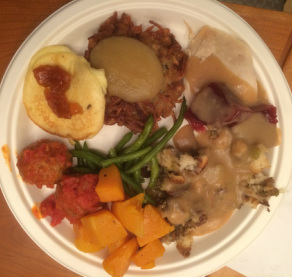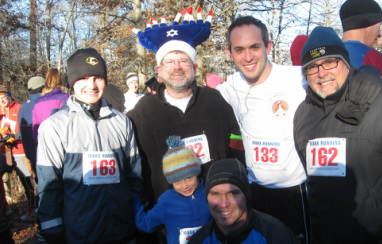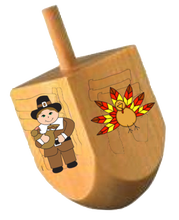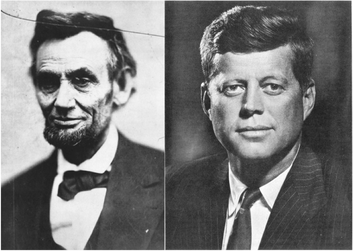
1) It usually takes me a week to work off the weight I gain over Thanksgiving and a week or two to work off the latkes and sour cream of Chanukah. I am not making any predictions about how long I'll be recovering from a combined orgy of sweet potatoes, sufganiyot, cranberry sauce and chocolate gelt. This could take a while.
2) For all the many words that have been written by myself and others about the things that Thanksgiving and Chanukah have in common, one thing emerges as the central truth: Family brings us together. It's not turkey, it's not the latkes, it's not the candles, and it's not watching football that people love about these two holidays. Chanukah and Thanksgiving each hold a place in our hearts because they are holidays that bring us together with family near and far.
3) Like most American Jews, my extended family includes Jews and non-Jews. We all get together every year for a Thanksgiving celebration that is warm and joyful, but without much ritual or overt spirituality. I think that all of us — Jews and non-Jews — found something meaningful in lighting the Chanukah menorah together as a moment of intentional reflection on our blessings and the miracles in our lives. Even if we never celebrate Chanukah at Thanksgiving again, I hope our experience this year will bring greater spirituality for all of us to our Thanksgiving gatherings in the future.
4) In the end, the hype did not really matter. All of those creative recipes for pumpkin challah, sweet potato latkes, and sufganiyot filled with cranberry sauce, did not transform either holiday into something new. The turkey menorahs were cute, but they will just join the many Chanukah menorahs already on the shelf that our kids made in Sunday school or that we got as wedding gifts from forgotten relatives. "Thanksgivukkah" was the Jewish Y2K — a calendrical oddity that will soon be forgotten.
5) There are four candles (plus the shamash) burning on my menorah right now, and they look lovely. In past years, we never let the gaudy glare of Christmas diminish their glow. This year, Black Friday didn't distract us, either. These lights are meant for gazing upon, remembering and praising the Source of our blessings. That is the same this year as it is every year. We will have four more nights of it this week. Make the most of them!
Other Posts on This Topic:
Chanukah Chaiku
The Audacity of the Miracle





 RSS Feed
RSS Feed
